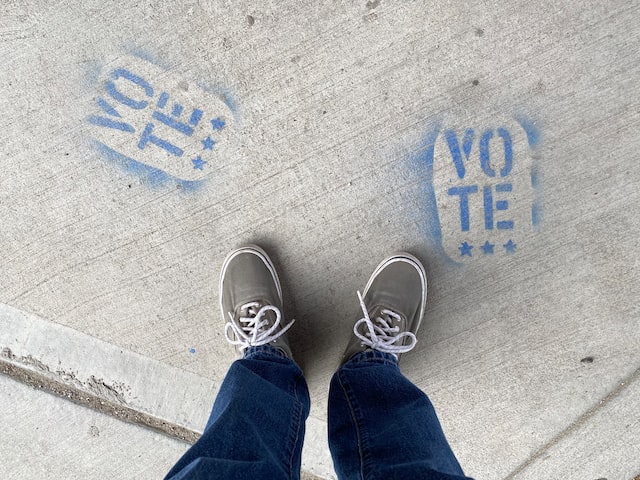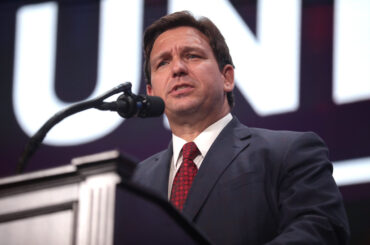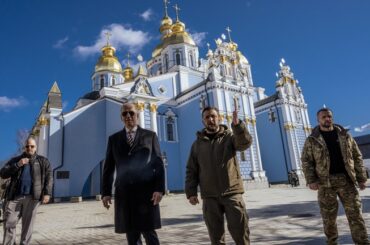Members of the Democratic National Committee decided to move Nevada’s presidential primary up to the second position in the country on Friday. This decision established a proposed schedule for the nomination process that would place Nevada and New Hampshire’s primaries three days after South Carolina, which has just become the first state to hold a presidential primary.
President Joe Biden overturned Nevada’s attempt to host the nation’s first presidential primary on Thursday night by persuading DNC members to hold the party’s first election in South Carolina instead.
According to Biden’s plan, which was first published in The Washington Post, the New Hampshire and Nevada primaries would be held simultaneously one week after South Carolina moved up from fourth to first in the order of contests. Additionally, he supported moving Georgia up to the fourth place and having Michigan close things off before Super Tuesday, with Iowa being removed from the early schedule.
Artie Blanco, a Nevadan who works for the AFL-CIO and a member of the DNC’s Rules and Bylaws Committee, suggested moving Nevada and New Hampshire closer to South Carolina’s primary date, but the RBC ultimately adopted Biden’s preferred scheduling sequence. Nevada and New Hampshire will follow South Carolina on Tuesday, February 6, and Saturday, February 3 will see South Carolina’s primary. On February 13, Georgia will come next, and February 27 will see Michigan round up the early schedule.
Nevadans will cast the nation’s first ballots, along with early voters in the other early states, because early voting is available in both South Carolina and Nevada. While it’s not ideal, Blanco added, “We accept it and understand what the president’s wish is to be on the same day as another state.”
Both Nevada and New Hampshire supporters were taken aback by the decision, as they had expected the DNC would ultimately choose between their two states. South Carolina was not widely anticipated to host the first presidential primary. Even though the state has a sizeable Black population, it does not meet the DNC’s competitiveness requirements since it is a safe Republican state, which is one of the primary criticisms of Iowa, another red state.
Democratic senators Jacky Rosen and Catherine Cortez Masto of Nevada rejected the president’s idea in a joint statement on Thursday night, saying it did not meet the standards the DNC set for the early slate. “We firmly believe the first presidential nominating contest should be held in a competitive, pro-labor state that supports voting access and reflects all of America’s diversity. In other words, a state that aligns with the DNC’s priorities for updating the calendar,” the senators said. “This proposed revised order for the early states ignores the large coalition of national groups and leaders pushing for Nevada to go first, and instead elevates a state that doesn’t satisfy the requirements to kick off this process,” the statement reads. Further criticizing Biden’s plan as “flawed,” Nevada’s Democratic legislative leaders vowed to conduct their primary on the first Tuesday in February, which is customarily the day of the Iowa Caucus.
Nicole Cannizzaro, the majority leader in the Nevada Senate, and Steve Yeager, the incoming speaker of the Nevada Assembly, issued a joint statement saying they “strongly disagree with President Biden’s proposed revised sequence of early presidential nominating states.”Similar to other Democrats who were outraged by the report, the New Hampshire Democrats announced on Twitter that they would change their primary date to be the first in the country regardless, by state law. “This status is independent of the President’s proposal or any political organization,” Sen. Maggie Hassan wrote.
The DNC can penalize states that disobey its calendar by revoking their delegates at presidential nominating conventions, as it did in 2008 when Michigan and Florida held their contests ahead of the DNC’s schedule. State legislatures are responsible for setting the dates of their presidential primaries and caucuses. However, it is up to state legislatures to move their primaries to the DNC’s desired date; this requirement of the statute would require the support of Republican majorities and the governors of South Carolina and Georgia.
The usual early-schedule states for Republicans in 2024 are Iowa, New Hampshire, Nevada, and South Carolina. The DNC’s Rules and Bylaws Committee (RBC), which met on Thursday and will meet again on Saturday, was anticipated to follow the party’s leader’s desires now that the White House has spoken out. In 2023, the whole DNC will vote on the suggested schedule. Only two committee members—Scott Brennan of Iowa and Joanne Dowdell of New Hampshire—voted against the new calendar.
The plan was modified at the RBC meeting on Friday when Blanco referred to the calendar change as the “final piece” of late Sen. Harry Reid’s legacy. She requested that Nevada maintain its place on the first Tuesday following legislation approved in 2021 and that South Carolina, which typically votes on a Saturday, be pushed ahead to the first Saturday in February. Since the first Saturday in 2024 occurs before the first Tuesday, South Carolina would still take the lead.
In an interview, Blanco stated, “It’s still in the spirit of what the future of the party looks like and what the President reflects that he desires. “I want to respect that process,” Blanco added. Although Biden hasn’t formally announced his bid for re-election in 2024, it is what is expected of him. By putting South Carolina in the spotlight, Biden would make it even more unlikely for any Democratic rival to succeed in unseating him, even if any such challenger would have to defy history.
To prevent the new timetable from becoming as ingrained as its predecessor, Biden also requested that the RBC examine the calendar every four years and revise it to reflect the party’s modern principles. This was added to the 2024 deadline. The RBC ought to rank Nevada first regardless, according to a statement from Judith Whitmer, chair of the Nevada Democratic Party, to The Nevada Independent.


